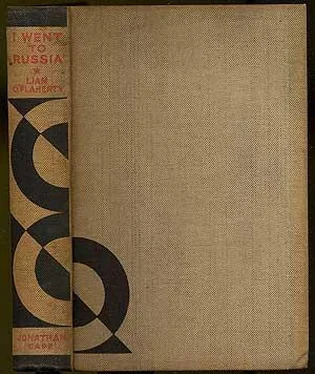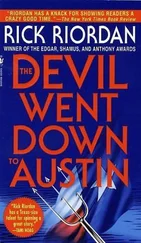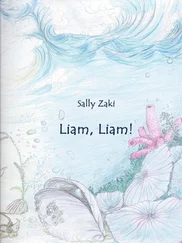The captain believed in the lurid insanity of this prisoner, whose intellect had burst clear of the earth’s moorings during fifty years’ confinement. Not only did he believe, but he scattered these volumes among his crew and he told me proudly that they also believed. They were stirred into enthusiasm by the assurance that; nothing ever existed but Byzantium, the mother of Holy Russia. Therefore Russia is the source of civilisation and no Russian ever again need feel an inferiority complex when confronted with the civilisation and culture of Europe.
Mad, mad! But it is only the mad who conquer worlds. This was the madness of Christ and of Mahomed, the madness of Alexander who deified himself, the madness of Napoleon who believed in the guiding star of his destiny. Conquest is to the mad and defeat is for us, who linger by the stagnant pools of reason.
Suddenly he rose up before me, unwinding his long body until he reached his full height. Smiling on me, as gently as the Christly Prince in The Idiot might smile, he said in a pathetic voice:
‘I have two parrots in my home at Leningrad. The comrades ask me why I develop bourgeois habits, by buying such toys as parrots. I tell them that parrots live for hundreds of years. My parrots are now young. Perhaps they will see Communism. I will never see Communism. But as long as I live I will make war on the bloody bourgeois. My children are growing up. They too will carry on the war against the bloody bourgeois. Now I go to the meeting of our Soviet.’
At that moment, the doctor entered the room to say the captain was wanted at the meeting of the Soviet.
‘You come also,’ he said to me.
I followed them. The night was dark on deck. The sea loomed up, hurriedly rushing past the sides of the floundering ship, in a mysterious fashion.
We moved aft. Presently a light gleamed from an open doorway and I heard heated voices arguing. It was the meeting of the Soviet. I felt a thrill. At once it occurred to me that this perfectly legitimate meeting of the Soviet reminded the captain of the old days, when he held exciting and illegal meetings in cellars and in caves, with scouts and all the awe-inspiring paraphernalia of conspiracy. Then as now he was plotting war against the bourgeoisie. Then he was powerless to act, except in a crude and violent fashion. Now he was master of a powerful unit of warfare, a whole ship’s crew and a ship, sailing the open seas, with his flag strung proudly at his mast. How delighted he must be with himself, I thought.
I entered the room with them and sat on a form near the door. Then indeed I too felt awed. I do not know why, but even now, months later, I can recall the terrific spiritual and emotional reaction to that sight, all those seamen gathered together under the portrait of Lenin, arguing about the governance of their ship. The doctor tried to interpret what they were saying, but I paid no attention to him. One after the other they got up and shouted and perorated and shook their fists at one another, with the same force and enthusiasm one finds among the characters of an Elizabethan drama; the same violence of gesture, the same crazy sincerity, the same extravagance of emotion. The meeting summed up and contained all that I had seen on board the ship, all that I felt of mystery and of power in Bolshevism. I tried to ridicule it, to tell myself that they were playing at being a Soviet, at running the ship in common. But the atmosphere swept aside reason and ridicule. It was over-powering, like the sudden awe that overcomes a man in a lonely cave at night and forces him to run flying before spooks.
Only with the difference, that I wanted to jump up and cry out I was a Bolshevik. I trembled on my form and did not rise.
Presently I crept out into the night and leaned over the ship’s side, listening to the rolling sea. I could still hear their voices raised in argument, the words Soviet, Socialist, Industry, Bourgeois, Proletariat rushing out at me. But above all the savage energy in the voices, the triumphant outburst of force; while the ship sailed and the gloom of night about the meeting place made sinister their strange conference.
Somewhere on the ship a man was playing a Balalaika, a wailing tune that rose and fell like the steppe. That is where they come from.
Chapter IV. Jews And Vikings
On the following afternoon we sighted the coast of Norway. I was leaning over the side with the doctor.
‘What sort of cargo do we take in Norway?’ I asked him.
‘Zinc,’ he said. ‘Metal for Five Year Plan.’
‘Where do we get it? Where are we going?’
‘Odda. Small town in Fiord. I been twice already in Norway. I like country. My ancestors were Scandinavian. Some Scandinavian, some Jewish, some Tatar. Great deal Tatar, great deal Scandinavian, a little Jewish. Born in North Russia. I am biologically an internationalist.’
‘That is very interesting,’ I said, looking at him closely.
‘It is interesting scientifically,’ he said with excitement. ‘And for this reason specially. Great mixtures of blood, such as in my life machine, cause great social disturbance. Then progress comes. In Soviet Union we have more than one hundred different races. I myself do not know the names of them all. We shall mix them together as compounds are mixed in a scientific laboratory. Then we shall build great civilisation with this mixture. We shall teach this mixture a common proletarian culture, what you call world culture. Then human race, at one jump, go forward five cultural miles. If from dawn of history, so called, until now equal one cultural mile, then from outbreak proletarian revolution until realisation of socialism equal five cultural miles.’
I looked at him still more closely. His forehead was furrowed with thought. His eyes blazed. It was something more than his belief in Communism that excited him.
‘How long do you think that will take?’ I said quietly. ‘To realise socialism.’
‘I know not,’ he said. ‘Perhaps one hundred years. Perhaps two hundred years. That is not important. It is the struggle, the new moulding of a world type that is interesting, destroying old prejudices and building new, great, wonderful world culture.’
‘So to speak,’ I said, ‘you hope to evolve Nietzsche’s Superman through the medium of the proletarian revolution.’
‘No, no,’ he said angrily, just as I had expected. ‘Nietzsche was a savage, a sick savage. Great genius but. . . .’
‘He did not understand Marx/ I said gently.
‘No,’ said the doctor eagerly. ‘He did not.’
He excused himself and ran off to attend to one of the crew.
‘Ha!’ I thought. ‘He says he is a Tatar and a Norseman and a Jew, but I think he is all Jew, from Tartary and Scandinavia and North Russia. Truly an internationalist, for the Jew has no country. No matter where he suckled at the earth’s breast he remains a Jew. The earth seems to shun him and to deny him characteristics that; she grants to other types of men and animals. He cannot change his form or his habits no matter whether he wills to be born on the Himalayas or the pampas of the Argentine. Everywhere he is pursued by the curse of his heredity. And all the time he tries to fly from it, to deny his origin, to be assimilated by his environment. But all races cast him forth and eschew him. And in rage he invents religions that are based on human brotherhood, on the negation of race and of caste and tries to force their acceptance on all humanity, so that at last he may disappear from the face of the earth as a Jew and come to life as a brother of all men, a blood equal of Mongols and Slavs and Teutons and Franks and Latins. But shall he ever succeed? Shall this crusade for the abolition of classes result in the abolition of the Jew?’
Читать дальше












